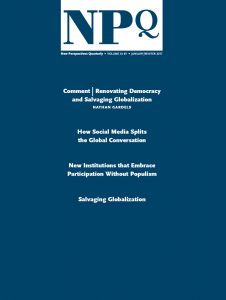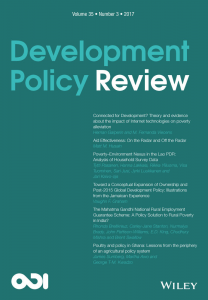weightless capitalism
![]() Google announced that its new operating system, Chrome OS, will be free of charge. Further, it is designed to operate in the “cloud,” meaning that most of its functionality will exist online, using internet applications like GMail and Google Documents instead of programs installed on a hard drive (as Windows does). The free cloud-based operating system is designed to run on smaller, lighter “netbooks” -a bright spot in the computer market in these tough economic times. I previously wrote about the transumer and virtual goods as evidence of Zygmunt Bauman’s liquidity thesis that exchange online is following a lighter and more fluid path. These developments further underscore the relevancy of Bauman’s thinking, and beg the question: is the digital economy approaching a sort of ‘weightless capitalism’?
Google announced that its new operating system, Chrome OS, will be free of charge. Further, it is designed to operate in the “cloud,” meaning that most of its functionality will exist online, using internet applications like GMail and Google Documents instead of programs installed on a hard drive (as Windows does). The free cloud-based operating system is designed to run on smaller, lighter “netbooks” -a bright spot in the computer market in these tough economic times. I previously wrote about the transumer and virtual goods as evidence of Zygmunt Bauman’s liquidity thesis that exchange online is following a lighter and more fluid path. These developments further underscore the relevancy of Bauman’s thinking, and beg the question: is the digital economy approaching a sort of ‘weightless capitalism’?
Chris Anderson’s new book, Free, tackles just this sort of emergent business trend online. The marginal cost to produce digital items approaches zero because microprocessing, storage and bandwidth are increasingly cheaper. Another factor that applies to many Web 2.0 companies is that much of the content production is out-sourced to the consumers. That is, we are the prosumers of Facebook because we are simultaneously the producers and consumers of it. The result is that we do not have to directly pay to use Google’s services, or for things like Facebook, Flickr, Yelp and so on.
When products are free and labor is often done without pay, we have near-weightless capitalism.
 Bauman saw capitalism as getting lighter all the time as the focus shifts from heavy physical goods towards lighter entities like ideas and information, allowing for a capitalism that adapts more quickly to changing markets and is less steeped in tradition. Anderson points out that few top companies actually produce physical products anymore. Instead, nearly all of them now work in the lighter realm of ideas and information.
Bauman saw capitalism as getting lighter all the time as the focus shifts from heavy physical goods towards lighter entities like ideas and information, allowing for a capitalism that adapts more quickly to changing markets and is less steeped in tradition. Anderson points out that few top companies actually produce physical products anymore. Instead, nearly all of them now work in the lighter realm of ideas and information.
Almost a decade ago, Bauman viewed Microsoft as the paradigmatic example of the lighter capitalism because software was easily changeable and disposable. Today, Web 2.0 marks a further lightening. User-generated content is not largely dictated by corporate structures. Corporations on Web 2.0 do not have to dictate efficiency and worry about waste because Web 2.0 is a digital environment where content and labor is abundant. Thus, corporate entities on Web 2.0 can become more than liquid, they are gaseous; more than light, they are nearly weightless.
 Cloud computing, exemplified by Chrome OS, is lighter. Applications are more nimble and easily changed because they run on Google’s servers, where content and computing power are not rebuilt over and over on millions of personal computers, but is distributed efficiently via Google’s servers akin to utilities like water or electricity. Also, this distribution will involve the smaller “netbook” computers, which are literally lighter and also metaphorically lighter in Bauman’s terms.
Cloud computing, exemplified by Chrome OS, is lighter. Applications are more nimble and easily changed because they run on Google’s servers, where content and computing power are not rebuilt over and over on millions of personal computers, but is distributed efficiently via Google’s servers akin to utilities like water or electricity. Also, this distribution will involve the smaller “netbook” computers, which are literally lighter and also metaphorically lighter in Bauman’s terms.
Further, Chrome OS is light because it is free. While Microsoft charges for Windows, Google plans to integrate its operating system with its host of other free services as part of its business plan of gaining information about its users and charging for advertisements. The Chrome OS is a further example that Google, like other companies, can become lighter by being essentially de-monetized from the point of view of the user.
However, we should heed Malcolm Gladwell’s point that we are not in a completely weightless capitalism. Google still has its servers and there exists plenty of heavy infrastructures to keep the digital world moving. Given this important clarification, we should recognize that the digital world is a capitalism that is nearly weightless, even if it is still anchored to a heavy material reality. All of this begs another question: what would a truly weightless capitalism look like? Would it still be capitalism? Is Wikipedia an example in that it operates in a non-monetary market of trust and reputation? ~nathan
![]() Google’s Chrome OS: Reaching for the Cloud
Google’s Chrome OS: Reaching for the Cloud
![]()
![]() The Intersecting Roles of Consumer and Producer: A Critical Perspective on Co-production, Co-creation and Prosumption
The Intersecting Roles of Consumer and Producer: A Critical Perspective on Co-production, Co-creation and Prosumption


















1520-6688/asset/Capture.jpg?v=1&s=b5076c49a7d1c5f1b9cf0dd9cd292394a3be81cc)
1540-6210/asset/society_affiliation_image.gif?v=1&s=812a48e1b22880cc84f94f210b57b44da3ec16f9)
Interesting post. I also wonder…at some point will this weightless capitalism shift forms? Using the physics metaphor, are there economic, political, or cultural conditions under which capitalism might shift from solid to liquid to gas or vice versa? I am thinking, particularly, of those futuristic movies that portray life as pre-industrialized. These films are always strange to me, but perhaps sociology can explain how the process of losing technology might unfold.
Keri